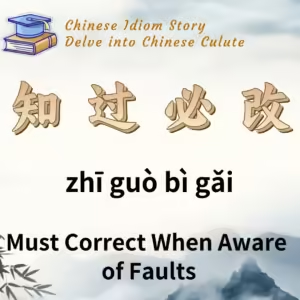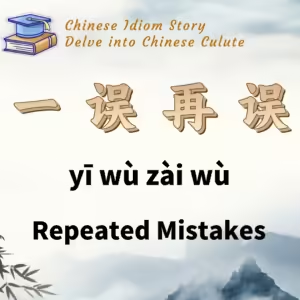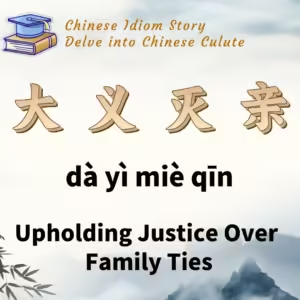
Chinese Idiom: 知过必改 (Zhi Guo Bi Gai)
English Translation: Must Correct When Aware of Faults
pīn yīn: zhī guò bì gǎi
Idiom Meaning: This phrase implies that once a person recognizes their mistakes, they must resolve to correct them steadfastly.
Historical Source: Thousand-Character Classic (《千字文》) by Zhou Xingsi of the Southern Dynasties
Idiom Story:
In the Warring States period, a statesman named Shen Buhai served as the prime minister of the state of Han. One day, King Zhao of Han expressed his frustration to Shen, stating, “It is truly difficult to implement laws in the state.”
Shen Buhai took the opportunity to analyze the situation in Han and explained, “The difficulty in executing laws arises from the lack of clear rewards and punishments by those enforcing them. Personal relationships and favoritism must not influence decisions. Only those who genuinely contribute should be rewarded with positions and honors. However, Your Majesty often succumbs to requests from relatives and favored officials, thus undermining the law. Naturally, it becomes difficult to enforce.”
King Zhao listened attentively, nodding in agreement, and acknowledged his errors by saying, “You are right! From now on, I understand how to implement the laws.”
Later, Shen Buhai’s cousin visited the capital and asked for his help in securing an official position. Not wanting to refuse, Shen approached the king to advocate for his cousin. The king responded, “Isn’t this contrary to what you’ve always advocated? Should I favor personal connections and neglect the laws you uphold?”
Hearing this, Shen Buhai felt deeply ashamed and immediately fell to the ground to apologize to King Zhao.
This story illustrates the principle of accountability and the importance of correcting one’s mistakes upon realizing them. From this, the idiom “知过必改” emerged, emphasizing that acknowledging a fault entails a commitment to amend it.






